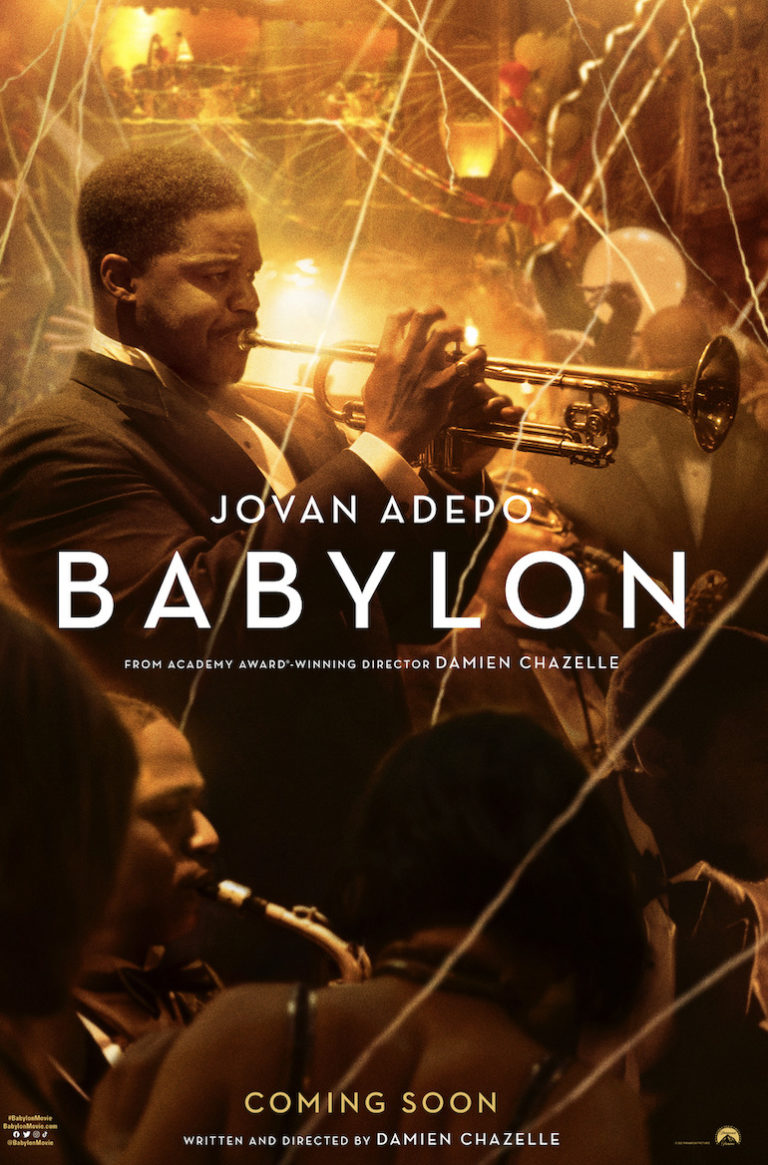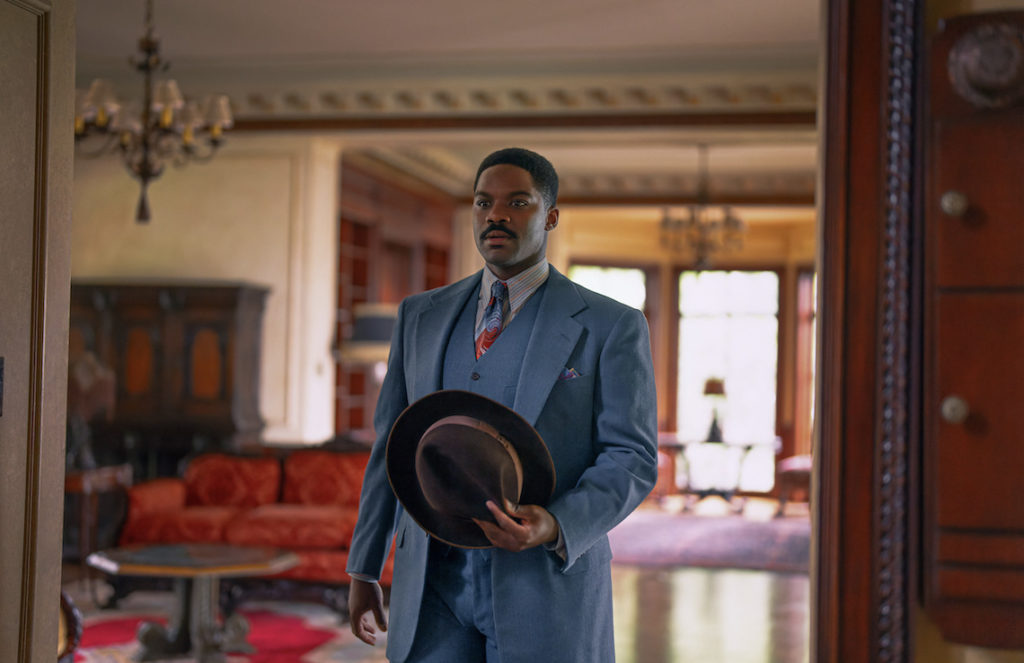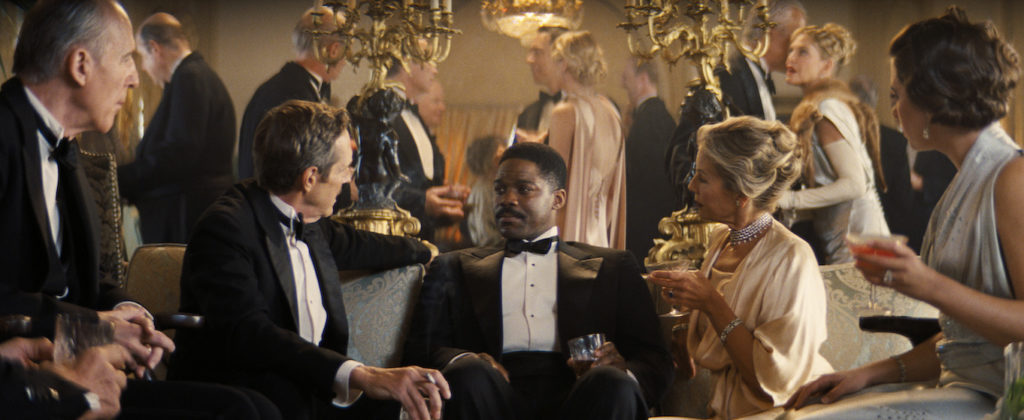

Q: Could you take me through your audition process with Damien Chazelle, the director?
JA: Oh, man. All the audition processes that I’ve gone through have been stressful, just because you’re so excited about the role in question — or at least I am. I stress about it until I get the role or don’t get the role. I want to say it was the end of 2018 or early 2019 that I auditioned for it, and I sent the self-tape. I remember seeing the ticket come through in my email, and as soon as I saw Damien’s name on it, I was like Oh, my god, obsessive, I’m excited. I am a huge fan of his work. I sent a self tape, and actually hadn’t heard from him in like a year. I think this was right when the shutdown — when the pandemic actually went into play. So everything kindof slowed down.
And I remember after that self-tape — it was just one tape — he actually called me, it was the end of 2020 and I was at the grocery store. He called me and said “Hey, this is Damien.” I thought, this is cool. “What’s up?” He was like, “Yeah, I want you to play Sidney if you’re available. I’d love for you to be in this movie.” I was ecstatic. I knew whatever it was going to take for me to get this role perfect, I wanted to do my best for it. Because this cast and the size of the script and the scale of the film itself were something that I really didn’t want to let slip away.
Q: Damien wrote a 180-page script. What was your impression from reading that script?
JA: It’s massive. I even think it was more — it had to have been close to like 200-something pages. It was a beast. But it was like, when you first read it you almost have to sit with it for a minute and then go through it again because, like you said, it’s so ambitious, and it pushes the envelope as far as an artist bringing something from page to screen. You’re anxious and curious to see how they’re going to bring this epic to the screen. But if anyone could do it, it could be Damien Chazelle because he’s done brilliant films before. The way he adapts what he writes down and puts to the screen is something to be marveled over.
Q: You learned to play the trumpet for this movie. Did you ever play before, and if not, what training did you have to make it so authentic?
JA: Incredibly, incredibly vigorous. I touched the trumpet briefly in middle school, but it was only — I want to say it could only have been a month long and then I quit. I was like, I want to focus on sports. But to pick it back up again, I was already familiar with how to play the trumpet, just the basics of holding it and what the valves meant and all of that. But I don’t read sheet music and I can’t play anything really complex, so Damien and Justin [Hurwitz, music director] were really patient with me in developing a system.
Justin was creating the score, essentially, for the film and sending it to my trumpet coach, Dan Fornaro, who’s a brilliant, brilliant musician. They developed a system where they could number each of the musical notes because there’s only three valves on the trumpet. So if you number each of those notes on paper, and then my coach would play it, then I would watch him and commit it to memory, just watching him play these notes, and listening to the music at the same time. I was doing that Monday through Friday, two to three hours a day. I was really going for it for three months. It was intense.
It was intense, but for this type of film you have to, because everybody’s going to know. When it comes to film — and Damien shared this with me from “Whiplash” — people are going to know if it looks fraudulent. So you have to put the man-hours in of really making sure you understand the instrument, and you have to learn to play it the best you can, which is what I tried to do.
Q: Damien was also a musician before he became a filmmaker. How comfortable was it for you to rely on his direction, because he knows so much about music?
JA: Even if this movie had nothing to do with the music, I would have trusted his direction anyway. Because this Damien that we’re talking about. Every actor that came on to this film believes in Damien’s ability, believes in this movie, believes in the script. You know he’s the type of director that’s incredibly — he’s hyper-focused. There’s so much going on in this movie, as you know, and for somebody to keep everybody on track and really focus on everybody else’s job and also on his, is somebody to be respected. So whenever he had a suggestion — he’s very collaborative, he really wants to know your input. But also if there’s something that he really, really feels needs to be a certain way, he’s going to explain it to you. And far as I can remember, he’s usually right, so you learn to trust somebody like that. And as actors, we rely on a director who knows what he needs to do for his story.

Q: Margo Robbie’s character [Nellie LaRoy] is loosely based on the actress Clara Bow. Is your character based on any of the actors or musicians or anybody that Damien asked you to watch?
JA: Yeah, I had to watch all of it, and it was really interesting because I hadn’t spent a lot of time on this era just in my personal life, other than listening to some of the music. I’m a huge fan of the Nat King Coles, the Duke Ellingtons, Cab Calloways. But I had never really ventured into the history of Black artists in Hollywood in the 1920s. So I was really fortunate in that me and Damien spoke about all of these different pioneers of the entertainment industry. I was able to pick and choose certain things about different people.
And it wasn’t even just the era of the 1920s. I was able to pick from contemporary artists as well, like Wynton Marsalis and Robert Green, a jazz pianist. But just the way that they spoke their cadence and voice and their sound, how they even walk. I was able to study everybody, and then try to find things that I could apply within me that I was able to play believably and fully.
Q: Now that you know about what was going on in Hollywood in the 1920s, the Harvey Weinstein cases started in 2017. How much do you think Hollywood itself has changed over the course of years, in your perspective?
JA: I think there’s just more visibility about the industry itself. We’re in the age of information and everything is out there. People can give their feedback, people can talk about diversity, they can talk about inclusion. There are way more conversations being held about how we can make our industry a safer space, a more productive space, and really support the artists fully, and not just by giving the funds to make an interesting film but [also] to protect them, protect their rights and protect the sincerity of filmmaking.
Q: What do you want the audiences to take away from this film?
JA: Of course, they’re going to have a lot of fun watching the film itself. It’s funny, and it’s really fast-paced and there’s a lot going on. But I think that people will — as Damien does — really develop a stronger love and appreciation for filmmaking as a whole. The history of it is something to be respected, because if you look at this movie, a lot of these artists were experiencing a shift in the era and they were trying to navigate their livelihoods like, on the fly. There was no outline or people that came before them so they could really learn off of them. They were experiencing the shift into the sound era and trying to continue to help this industry thrive.
So I think people will develop a stronger love and respect for the history of film. But also, hopefully it will really push people to start going back to the theater for these experiences. I think we’re in a cool era of streaming and there’s plenty more shows out and opportunities for artists to share their work. But there’s something to be said [for] having the experience of film in a movie theater and sharing it with a bunch of strangers and everybody’s watching the same thing and enjoying the moment live and in person.
Q: Thank you.
Check out more of Nobuhiro’s articles.
Here’s the trailer of the film.

